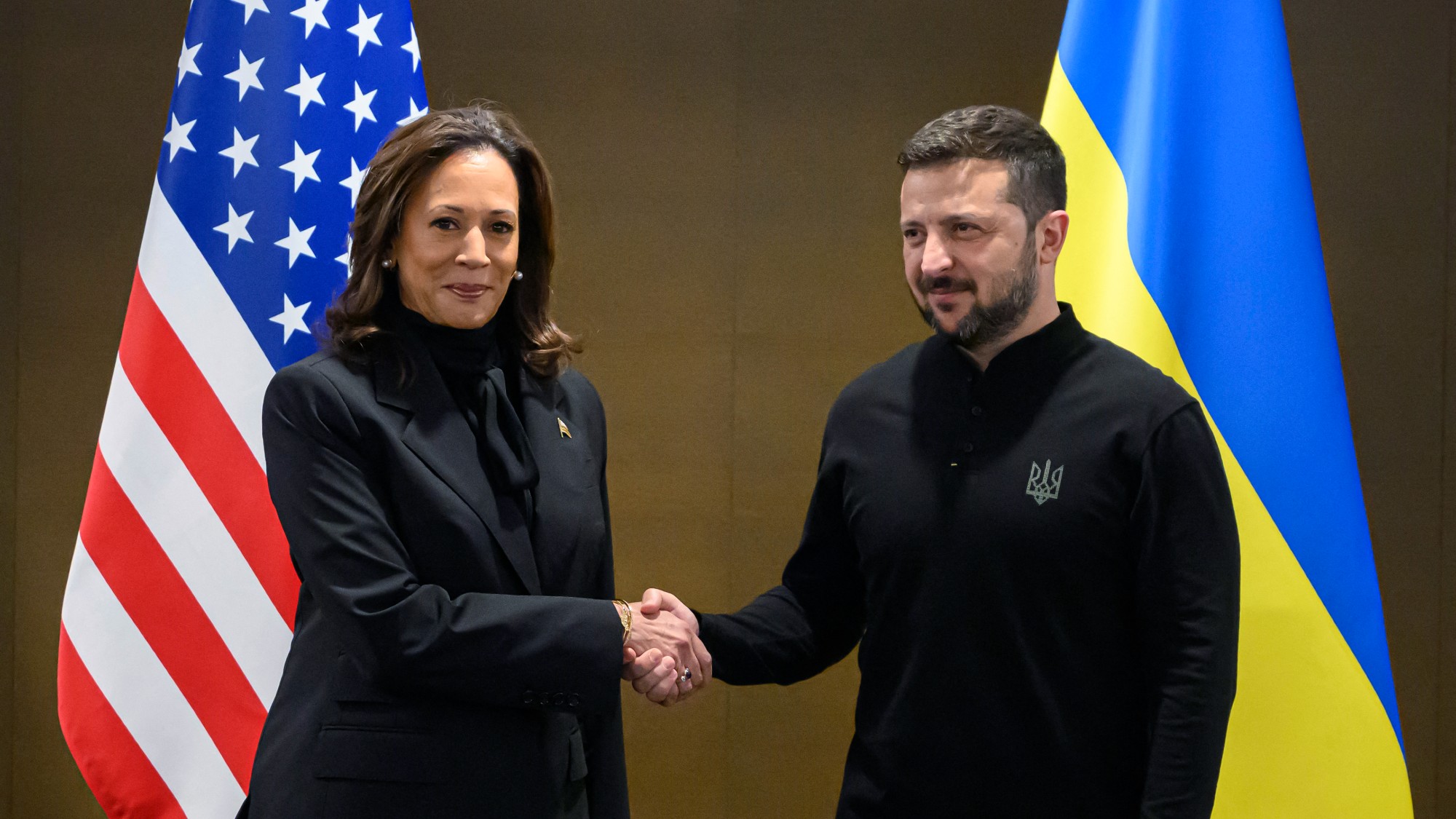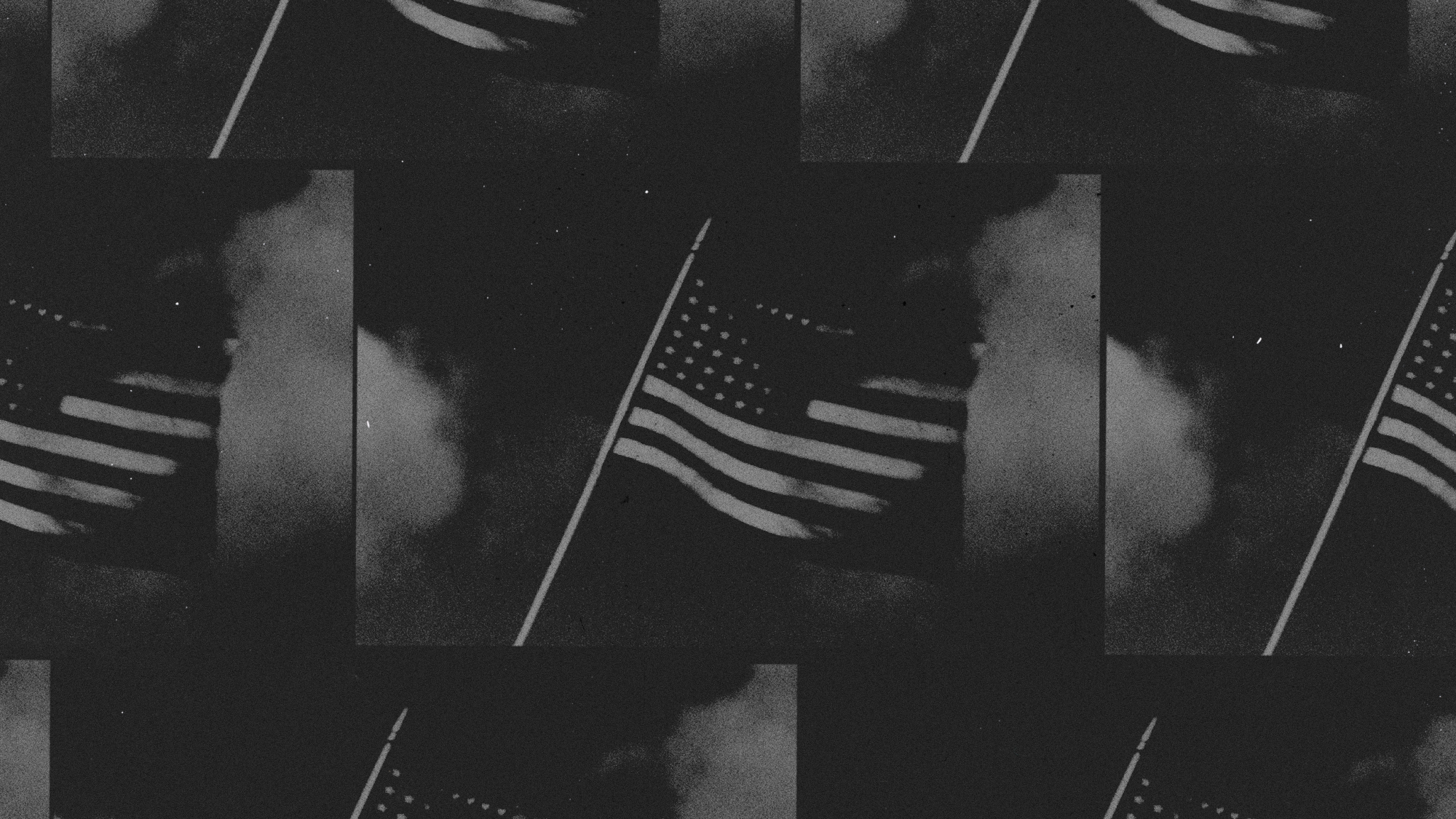Kamala Harris offers continuity on NATO, Ukraine
Hers is a sharp contrast to Donald Trump's approach


A free daily email with the biggest news stories of the day – and the best features from TheWeek.com
You are now subscribed
Your newsletter sign-up was successful
For 75 years, America has served as NATO's backbone. And NATO has backstopped Ukraine in its war against Russia. Kamala Harris says that commitment would remain if she becomes president.
Harris would be "steady on NATO," said Reuters. That stands in "sharp contrast" to Donald Trump's efforts to remake America's relationship with the military alliance. But Harris steadiness on NATO would continue the Biden administration's "staunch support" for the organization, Reuters said. And Harris has vowed to stand by Ukraine against Russia, which she has said is waging "barbaric and inhumane" war with its neighbor.
That support may only go so far. Harris has shied away from saying whether she would back Ukraine's bid to become a member of NATO, Bloomberg said. That's a question for the future, she told CBS' "60 Minutes." "Right now, we are supporting Ukraine's ability to defend itself against Russia's unprovoked aggression," she told the program. An anonymous aide later said Harris believes "Ukraine's future is in NATO," Bloomberg said.
The Week
Escape your echo chamber. Get the facts behind the news, plus analysis from multiple perspectives.

Sign up for The Week's Free Newsletters
From our morning news briefing to a weekly Good News Newsletter, get the best of The Week delivered directly to your inbox.
From our morning news briefing to a weekly Good News Newsletter, get the best of The Week delivered directly to your inbox.
NATO: Quiet continuity
"Europe can expect continuity from Kamala Harris," Jen Kirby said at Internationale Politik Quarterly. If Harris becomes president, America would "remain a strong supporter of NATO" — and remain committed to the organization's Article 5 requirement that an attack on one member be treated as an attack on all. (That provision is mostly seen as an American commitment to Europe's defense, though it was invoked after 9/11 to bring European countries into the fight against al-Qaida.) It is unclear, tbough, if voters care. "Foreign policy has not factored" into the campaign, Kirby said.
"Europe is far from the center of attention for the U.S. foreign policy set," said Politico. Neither Harris nor Tim Walz, her running mate, have talked much about NATO or Europe on the campaign trail. Europeans are anticipating changes, even if Harris wins, simply because U.S. leaders seem ready to pivot to China as a main focus. Europeans, said Lithuania's foreign minister, should "realize that America is and will be focused on [the] Indo-Pacific."
Ukraine: No surrender
Harris has also been steadfast in backing Ukraine. She has "slammed" proposals that Ukraine trade territory to Russia in exchange for peace, said The Associated Press. "They are proposals for surrender," she said at a September appearance with Ukrainian President Volodymyr Zelenskyy. She warned that America's enemies would be emboldened if the country abandoned Ukraine and allowed Russian leader Vladimir Putin to win the war. "The United States supports Ukraine not out of charity but because it's in our strategic interest," she said.
"Events on the ground in Russia and Ukraine will also shape the future president's decisions," Angela Stent said for The Brookings Institution. While it appears that Harris' Ukraine policy would "represent continuity" with the Biden administration, it is likely that she would ask advisers to review that policy once in office. President Joe Biden has been reluctant to let Ukraine have some offensive weapon systems; Harris might be "more forward-looking" on the issue. One question about Ukraine must still be answered by American policymakers, Stent said: "No one in the White House has defined what winning or prevailing might mean."
A free daily email with the biggest news stories of the day – and the best features from TheWeek.com
Joel Mathis is a writer with 30 years of newspaper and online journalism experience. His work also regularly appears in National Geographic and The Kansas City Star. His awards include best online commentary at the Online News Association and (twice) at the City and Regional Magazine Association.
-
 How to Get to Heaven from Belfast: a ‘highly entertaining ride’
How to Get to Heaven from Belfast: a ‘highly entertaining ride’The Week Recommends Mystery-comedy from the creator of Derry Girls should be ‘your new binge-watch’
-
 The 8 best TV shows of the 1960s
The 8 best TV shows of the 1960sThe standout shows of this decade take viewers from outer space to the Wild West
-
 Microdramas are booming
Microdramas are boomingUnder the radar Scroll to watch a whole movie
-
 ‘The forces he united still shape the Democratic Party’
‘The forces he united still shape the Democratic Party’Instant Opinion Opinion, comment and editorials of the day
-
 ‘The mark’s significance is psychological, if that’
‘The mark’s significance is psychological, if that’Instant Opinion Opinion, comment and editorials of the day
-
 Is the American era officially over?
Is the American era officially over?Talking Points Trump’s trade wars and Greenland push are alienating old allies
-
 Trump’s Greenland ambitions push NATO to the edge
Trump’s Greenland ambitions push NATO to the edgeTalking Points The military alliance is facing its worst-ever crisis
-
 Can Starmer continue to walk the Trump tightrope?
Can Starmer continue to walk the Trump tightrope?Today's Big Question PM condemns US tariff threat but is less confrontational than some European allies
-
 Trump considers giving Ukraine a security guarantee
Trump considers giving Ukraine a security guaranteeTalking Points Zelenskyy says it is a requirement for peace. Will Putin go along?
-
 Vance’s ‘next move will reveal whether the conservative movement can move past Trump’
Vance’s ‘next move will reveal whether the conservative movement can move past Trump’Instant Opinion Opinion, comment and editorials of the day
-
 What have Trump’s Mar-a-Lago summits achieved?
What have Trump’s Mar-a-Lago summits achieved?Today’s big question Zelenskyy and Netanyahu meet the president in his Palm Beach ‘Winter White House’
